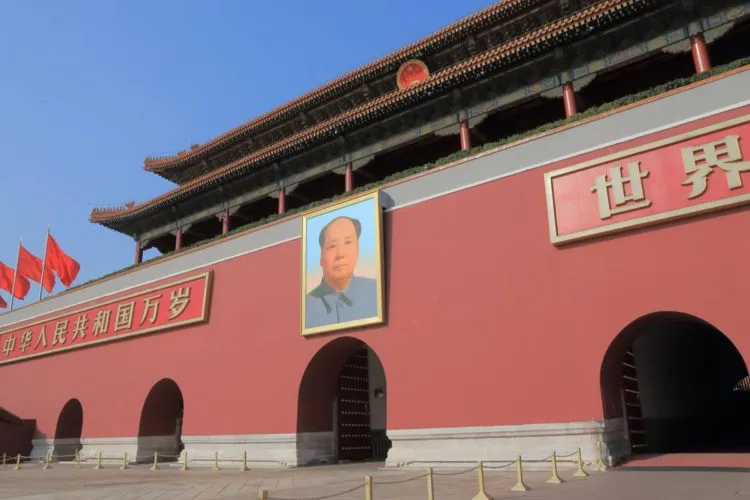Yu Inamura: President, Japan Counter Intelligence Association
Chinese engineers from Japan
Leak of Smart Agriculture Information
Recently, a Japanese man in his 50s, an employee of Astellas Pharma, a major Japanese company in China, was detained by the Chinese State Security Bureau just before returning to Japan on suspicion of espionage activities in China, in violation of the Anti-Spying Law.
Immediately after the incident, Foreign Minister Yoshimasa Hayashi visited China to protest the detention of Japanese nationals in China, including this case, and strongly demanded their early release.
Thus, many Japanese nationals are being detained as a result of opaque, ambiguous, or arbitrary application of the law by China. I imagine that they are under extremely harsh conditions, and I cannot hide my outrage when I think of them, their families, and other concerned parties. Those who have already been released and returned to Japan must have had a very difficult time as well.
In the midst of this situation, it was reported that a Chinese male engineer working for a domestic electronics manufacturer was investigated by the police for illegally taking smart agriculture information out of Japan last year, in violation of the Unfair Competition Prevention Law.
According to the report, the Chinese man had contacts with the Chinese Communist Party and the Chinese People’s Liberation Army, and had sent the information to two acquaintances of the company in China via social networking sites.
The man surfaced in another case and was discovered when investigators contacted a domestic electronics manufacturer. The investigators contacted the domestic electronics manufacturer and discovered that the man had surfaced in another case and were conducting an investigation, including interviews.
The Chinese man had already left the country, making further investigation extremely difficult, and the technology that went to China would not return to Japan. The investigative authorities have obviously made a great effort, and must be extremely disappointed.
The risk that a legitimate employee may be involved in the leakage of information
Risk of Information Leakage by Legitimate Employees
How was the information taken out of the Japanese electronics manufacturer?
The Chinese engineer in this case had legitimate rights of access to the “smart agriculture” information managed in the cloud, even within the company, and it is believed that he had been working there without any problems on a regular basis.
In fact, when we think of espionage cases, we often think of the use of Japanese agents through human channels to illegally steal information, as in the case of espionage by Russia. An example is the Softbank case involving “Line X” of the Russian Foreign Intelligence Agency (SVR). In this case, a diplomat from the Office of the Trade Representative of Russia, a member of Line X, contacted a former employee of Softbank and illegally obtained confidential information that was a trade secret of the company.
But the reality is not only that.
The Chinese engineer in this case had legitimately joined a domestic electronics manufacturer as an engineer and worked diligently on a daily basis in a legitimate job with legitimate access rights. However, they were actually under the command and control of the state, and under, they were taking technical information out of the country and transmitting it outside the country.
There are not only cases in which employees are under the influence of the CCP from the beginning of their employment, but there are also patterns in which they come under its influence after joining the company.
In a past case, about 200 groups and organizations, including the Japan Aerospace Exploration Agency (JAXA), were subjected to a large-scale cyber attack from June 2016, and in December 2021, an investigative agency arrested two Chinese nationals for contracting and using a rental server in Japan under a false name, which was used in the series of cyber attacks, and charged them with private The Chinese nationals were charged with fraudulent creation and distribution of electromagnetic records.
One of the Chinese nationals was a former international student, Wang Jianbin, who was asked to sign a rental server contract by a military woman belonging to the People’s Liberation Army’s cyber attack unit, Unit 61419 (4th Bureau of Technical Reconnaissance, 3rd Department).
To his surprise, a former supervisor at a Chinese state-owned company where the suspect used to work connected him with the woman.
The frightening part of this case is that a well-meaning Chinese man was taken advantage of by the CCP.
by setting up a merged company.
Legally leaking information
Of course, there are cases where Chinese technicians under the command and control of the CCP join a company concealing their status from the outset.
Furthermore, as listed on the Public Security Intelligence Agency’s website, there are of course cases of technology leakage through legitimate economic activities.
An example is the establishment of joint ventures.
In joint ventures with Chinese companies, Japanese companies often take the position that the latest technology will not be shared with the joint venture partner.
However, due to weak governance by the Japanese company, there have been cases where Japanese employees have taken sensitive information (drawings, etc.) out of the joint venture for the purpose of providing technical guidance to the local company, resulting in technical information being shared with the local company and remaining there even after the joint venture is dissolved.
As the U.S. has warned the world, China’s espionage activities and technology leaks are not limited to illegal methods.
As exemplified by China’s “Thousand Grains of Sand” strategy (*1), it is extremely important to keep in mind that Japan’s intellectual property is being eroded by businesspeople and foreign students, whether with malicious or good intentions, who accumulate knowledge in Japan and then return home (these people are known as “sea turtles”), and by legitimate economic activities such as procurement.
In addition, companies entering China must be aware of the Chinese domesticization policy (a policy that requires local design and local production, and if they refuse, they will be shut out of the market) and the semi-mandatory technology transfer indicated in a report published by the European Chamber of Commerce in China in January 2021.
1 Thousand grains of sand strategy: A strategy to collect information, however fragmentary, in a vast manner by using a wide variety of channels, such as business people, foreign students, and researchers, as in the case of Russia, not through typical espionage activities, but rather by using human sea tactics, like gathering sand from a beach.
Smart Agriculture Information.
Why was China targeted?
In the latest incident involving a domestic electronics manufacturer, information on programs for devices that optimally maintain the room temperature, soil moisture content, and other parameters of plastic greenhouses was illegally taken out of the country.
China has long been committed to modernizing its agriculture industry, and agriculture is listed at the top of the Chinese government’s list of industries that encourage foreign investment (a list that specifies specific sectors and regions that encourage and attract foreign investment), which includes the following The list also includes the following items that are relevant to the current case.
I. Agriculture, forestry, and ranching Agriculture, forestry, cattle ranching, and fisheries
- smart agriculture (integrated use of software technology and equipment, digital transformation of agricultural production and management)
(Excerpted from “Catalogue of Industries Encouraging Foreign Investment 2022,” Ministry of Commerce of the People’s Republic of China, translated by JETRO)
We encourage business people to read through this inventory for reference and check for technologies, information, and know-how that are relevant to their companies.
Economic Security
Necessity of Anti-Spying Laws in Economic Security
Since the term “economic security” became a trend, the issue of technology theft by China has come under close scrutiny. In Japan, too, the risks that have existed up to now have begun to be properly recognized, and public awareness of the issue is spreading.
On the other hand, it can be said that the aforementioned incidents of espionage and technology leakage that have come to light are just the tip of the iceberg.
Despite this extremely severe situation, Japan does not have an anti-spying law and there is no legal basis to crack down on espionage activities, so investigative agencies have managed to deal with the crime as theft, for which the statutory penalty is not so severe, or by making full use of the Unfair Competition Prevention Law and other applicable laws.
Therefore, the Anti-Spying Law should be considered.
Taking a cue from China’s anti-spying law, the definition of an anti-spying law must never be ambiguous and must eliminate any room for arbitrary operation.
As stated in the 1985 resolution by the Japan Federation of Bar Associations (LINK) against the “Proposed Law Concerning Prevention of Espionage Related to State Secrets” (LINK), espionage itself is very close to our daily lives, and there is a fear that punishment of espionage may infringe on basic human rights. Therefore, the contents of the bill need to be discussed thoroughly and carefully.
However, the world is currently in a period of change. The time has come to consider Japan’s counterintelligence once again, and to give full consideration to the Spy Prevention Law.
(Yu Inamura, Representative Director, Japan Counter Intelligence Association)











